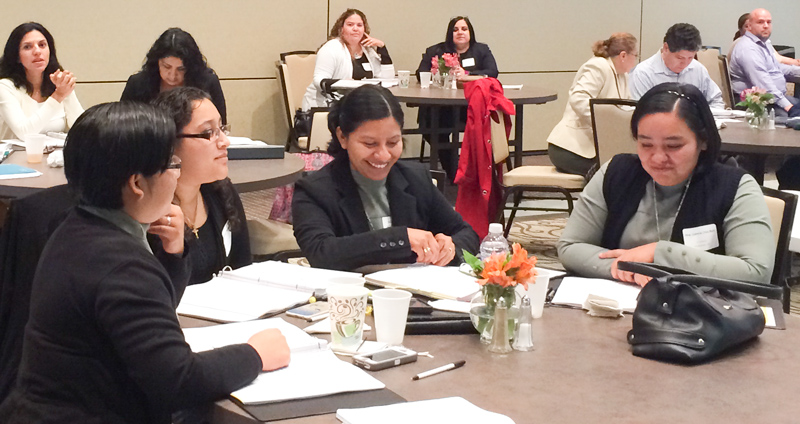
CHARLESTON—Language barriers may soon be less of a problem for Spanish-speaking people seeking annulments in the Diocese of Charleston.
Forty people recently began taking classes held in Spanish so they can learn to be case assistants in their parishes, said Valerie Maxineau, judge and moderator of the Tribunal for the Diocese of Charleston.
Case assistants meet with people who are seeking a declaration of nullity, assist them in compiling grounds for their cases, and act as liaisons with the Tribunal.
Maxineau said priests can automatically serve as case assistants, but the goal is also to have at least one lay person available as an assistant in each parish.
“The assistant can be there with people throughout the whole process to answer their questions,” Maxineau said. “When we have a petitioner in Greenville, we here in Charleston can’t be close to them throughout the whole process, but the assistant can.”
The large turnout for the classes, which started Oct. 27, are evidence of both the need for case assistants in the Hispanic community and an increased interest in the role itself, Maxineau said. She believes the interest will continue to grow as changes in the annulment process set forth by Pope Francis take effect on Dec. 8.
The changes, announced in early September, include eliminating the requirement that an annulment granted by a tribunal must automatically be appealed, and also allow local bishops in some cases to grant decrees of nullity in a matter of months when certain conditions are met. Pope Francis also declared that the annulment process should be free.
The new trainees will be an enormous help as the Hispanic population in the diocese continues to grow, said Jackeline Niederheitmann, Hispanic desk case analyst and procurator for the Tribunal.
She said men and women from several different nations, including Cuba, Colombia and Mexico, are training to be case assistants. Their diverse backgrounds will help them relate to the people who will seek them out for help, she said.
Niederheitmann said at any given time she is working with 20 to 50 annulment cases in the Hispanic community, and that number will probably continue to rise.
“We have an awful lot of people in need of this service,” she said. “Many of them migrated here from other countries for employment; some are women who were fleeing abusive relationships. They need help in their own language.”
Adults who are interested in becoming case assistants should speak with their pastor and receive a letter of approval to submit to the Tribunal. Candidates must attend two daylong classes, which cover such topics as canon law and the annulment process.

